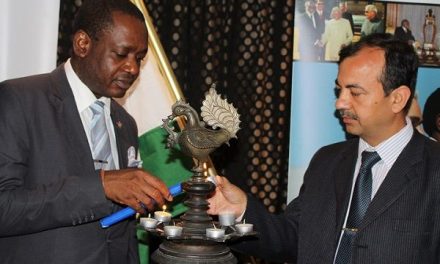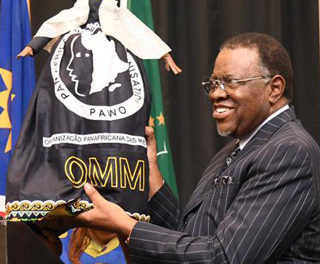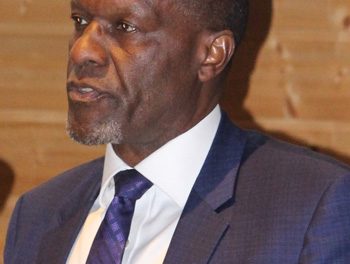
SADC central bank Governors caucus on sustainablity in financial systems amid climate change

By Adolf Kaure.
Southern African central bank governors gathered for the 57th Southern Africa Development Community (SADC) Committee of Central Bank Governors (CCBG) organised by the Bank of Namibia (BoN) at Swakopmund last Friday to discuss sustainablity in the financial system amid climate change.
In the presence of central bank govenors from Southern Africa, the executive board member of the Deutcshe Bundesbank, Dr Sabine Maurderer, highlighted central banks’ pivital role in using their analytical capabilities to draw the attention of governments to act on climate change while prioritising financial and price stability.
“Our baseline should be centred on financial stability even during the climate change situation. Governments should bring their mandates and central banks should bring their analytical ability,” she said.
Dr Maurderer also emphasised the need for central banks to define the role of the financial system and financial institutions in addressing and mitigating climate-related risks.
“Central banks should be able to draw their responsibilities within our manadate when dealing with climate change.”
“They need to draw attention of the govenment to act now, even if we as central banks can’t draw up the climate policy,” said Dr Maurderer during the panel discussion at the meeting.
The panel discussion underscored the importance of robust environmental and climate risk management practices within the financial sector while emphasising Southern Africa’s commitment to become a leader in sustainable finance.
The Southern African region, despite contributing minimally to global emissions, faces disproportionate vulnerability to the adverse effects of climate change. Extreme weather events, such as cyclones, droughts, and flooding, disrupt economic activity, leading to financial losses and heightened macroeconomic risks.
Also speaking during the panel discussion, the Governor of the Bank of Namibia, Johannes !Gawaxab shed light on Namibia’s vulnerability to recurring droughts, which adversely affect both livelihoods and economic stability.
!Gawaxab detailed Namibia’s strategic commitment to the global transition agenda, with a specific focus on Green Hydrogen, saying that the initiative aligns with the country’s climate resilience goals and broader economic development objectives.
“Namibia’s commitment to Green Hydrogen is a clear demonstration of our dedication to addressing climate change while fostering economic growth.”
“The production and export of Green Hydrogen aligns with our climate resilience goals of reducing greenhouse gas emissions, enhancing energy security, and diversifying our economy – and we believe that this initiative will enable us to tackle climate change while simultaneously promoting sustainable economic development,” said !Gawaxab.
The Chief Executive of the Environmental Investment Fund of Namibia, Benedict Libanda emphasised the vulnerability of SADC countries to the impacts of climate change, characterising them as among the most vulnerable nations globally.
He emphasised the staggering financial requirements of the SADC region, which necessitate an annual investment of US$200 billion by 2035 for effective climate adaptation and mitigation.
Libanda underscored the urgency of innovative financing mechanisms to meet this objective like taxing commodities containing carbon at border entry points, similarly done in European countries as well as strategic partnerships.
“If a commodity does not account for carbon emmission, when it enters into Europe it will be heavy taxed on carbon,” said Libanda.
The discussions reaffirmed the commitment of the represented central banks and financial institutions to work to address the pressing challenges posed by climate change.

Distinguished central bank governors from Southern Africa convened in Swakopmund for the 57th CCBG meeting. (Photograph by Adolf Kaure)












































